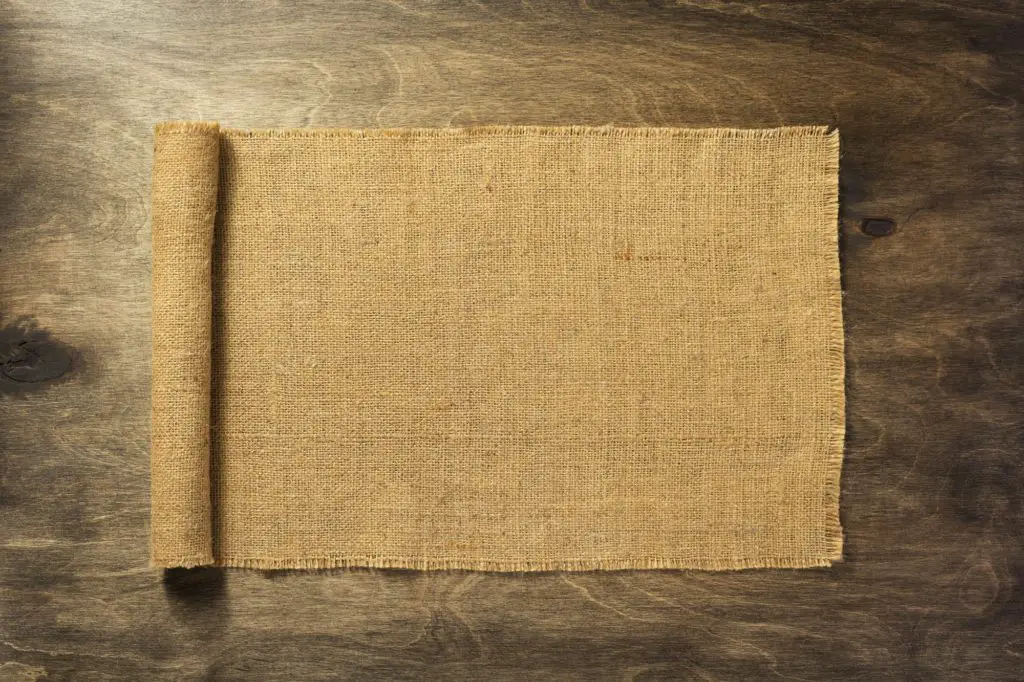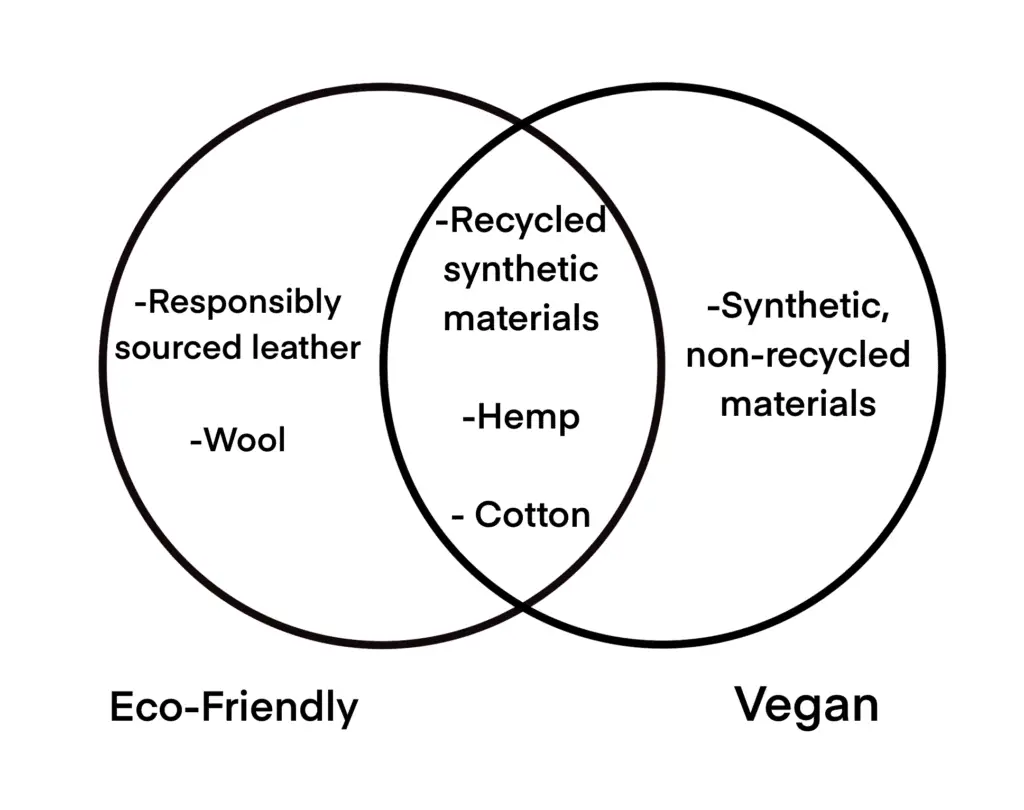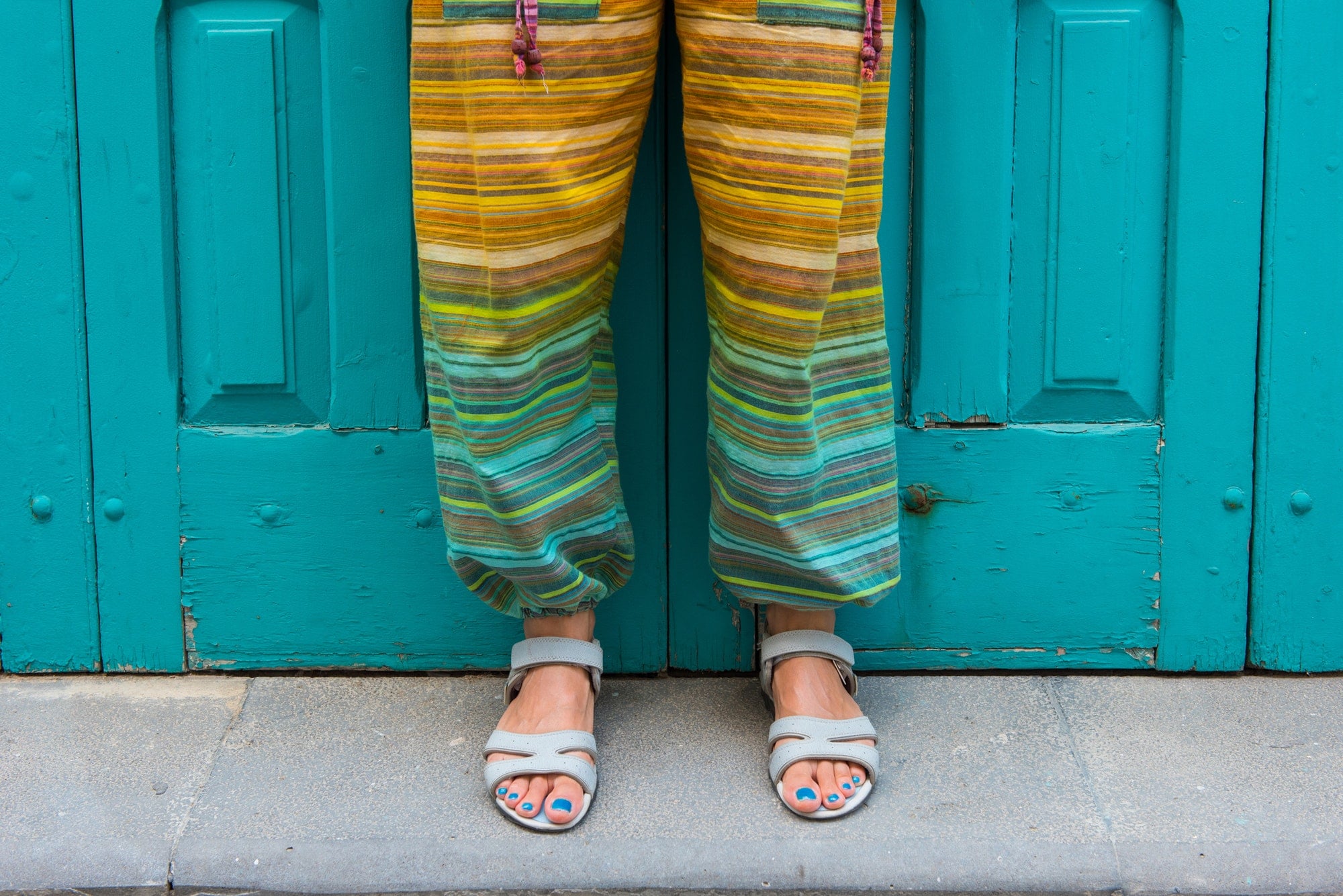Vegan shoes are made from plants that are naturally edible. They can be made from synthetic materials like rubber or plastic, and they are made from plants that are naturally edible.
No animal products are used in the making of vegan shoes. These include leather, fur, wool, and silk. No animal-derived ingredient can be used in the end product.
These shoes are made from a variety of materials such as cotton, hemp, or polyurethane. They are also made with materials that are naturally derived from plants.
Mylo is a cell-grown, fungal leather that can replace animal leather in the future, and it’s being used by some of the world’s biggest brands.
Due to the environmental impacts of the leather industry and the ethical concerns of consumers, more and more people are opting to go faux.
Types of Shoes Vegans Should Wear
Vegans do not ingest or use anything that is an animal product, extending beyond rejecting meat products and also refusing anything that an animal produces, from honey to eggs and dairy products.
When it comes to their shoes, vegans try to follow these same guidelines. Therefore leather, wool, or any material that came from an animal would be considered unacceptable by many vegans.
So, what type of materials can vegan shoes be made out of? Vegan materials include:
- Polyurethane
- Hemp
- Cotton
- Cork
- Many other synthetic materials
According to an article in The Washington Post, polyurethane is commonly used to create synthetic leather. Because it is a man-made substance, no animals were harmed and no animal products were used to manufacture it, thereby making it a vegan-friendly material. Polyurethane is not the only vegan-friendly material used to create synthetic leathers, which can also be made from cork and other plant-derived products.
Hemp and cotton are both manufactured using plants, and therefore are considered vegan. They are both also eco-friendly materials, making them an even better option when you are looking for a sustainable shoe.
Synthetic materials are man-made, and most fall under the category of vegan for that reason. For example, a classic Croc clog is made entirely of EVA foam, a synthetic material. While they may not be the most environmentally friendly materials, they are not made from animals or animal products, therefore are considered vegan.
What Makes a Material Eco Friendly

When you are looking for a shoe that is easier on the environment, it is important to know what makes a material eco-friendly in the first place? Eco-friendly shoes should check some of these boxes:
- Durable
- Made from recycled materials
- Materials come from renewable resources and/or are biodegradable
- Manufacturing or material-accessing carbon footprint is small
- Fewer materials are used to make them
Because of the intensity of the manufacturing process for many shoes, and because no matter how eco-friendly your shoes are they still can end up breaking down slowly in a landfill, an eco-friendly shoe should be durable. Getting a non-durable shoe, even a sustainable one, and having to throw it away and buy new ones often is not eco-friendly.
Recycled materials are eco-friendly because instead of sourcing brand new materials (some of which may not be renewable), the material is repurposed and used to make the shoe. An example would be a shoe made out of recycled plastic bottles.
Another sustainable shoe material is one that comes from a renewable resource. Some materials are in limited supply, and it is not considered eco-friendly to tap out an entire resource. Renewable resources are more available and easier to reproduce.
According to a study done by MIT, the manufacture and materials of one pair of conventional running shoes account for a large amount of carbon dioxide emissions: around 30 pounds each. This number is largely due to the 360 steps necessary to put together a pair of running shoes.
Some large companies like Nike have begun adjusting their manufacturing process to lower their carbon footprint, working to decrease the number of steps and materials necessary to make a shoe, and working to source their materials more sustainably as well.
Therefore, the fewer materials used to make a shoe, the more eco-friendly they may be. In addition to the manufacturing process involved in shoes with many materials, the more materials a shoe is made of, the more difficult it is to recycle the shoe when it is no longer of use to you, according to an article on eco-friendly shoes by NBC News.
What Shoe Materials are Eco Friendly?

Now that we know what standards an eco-friendly material must live up to, it is helpful to know exactly what materials reach these standards under most circumstances.
- Recycled materials such as recycled polyester, or materials made from recycled water bottles
- Hemp
- Cotton
- Wool
- Leather when sourced appropriately
Many plant-based materials are considered eco-friendly due to their renewability and ability to bio-degrade. This includes cotton and hemp. According to Environmental Benefits of Hemp – Ecological Agriculture Projects by McGill University, hemp especially is a very durable material that actually produces at least 2 times the amount of fiber that cotton does.
Wool and other textiles made of natural fibers quickly biodegrade according to a study done on the Biodeterioration of Textiles. While wool specifically is a durable material when cared for correctly, it will quickly succumb to a moist and warm environment such as it would encounter when disposed of.
Appropriately sourced leather will be from tanneries that are rated highly by the Leather Working Group. These tanneries are rated on the Environmental Audit Protocol scale that looks at energy usage, and other sustainable practices. Gold is the highest rating you can achieve.
As you can see, while some eco-friendly materials are also vegan, there is only a partial overlap between the two categories.

While synthetic materials can be eco-friendly if they are recycled, vegan materials do not need to be recycled to be considered vegan, just free of animal products.
You can also see that some materials that vegans would be against like wool and leather, can be considered eco-friendly as long as they are sourced appropriately. Humane products do not always correspond with environmentally-sound products, and vice-versa.
Are Vegan Shoes Environmentally Friendly?
While a vegan lifestyle and an environmentally conscious mindset might seem like they go hand-in-hand, it can be hard to tell if the companies that make vegan shoes are equally as worried about their environmental impact. Regardless, you might feel just as strongly about your carbon footprint as you do about the humane treatment of all animals, and you will want to make sure your shoes reflect this.
You also might just be an eco-friendly animal lover and would prefer to keep your animal product consumption down along with your carbon footprint. Many people understandably want the best of both worlds: shoes that are ethically produced both in terms of animals and the environment. The question is, are any vegan shoes are eco-friendly?
Vegan shoes can be environmentally friendly if they are made out of recycled synthetic materials, or renewable plant-based materials. However, not every vegan shoe is committed to being sustainable. Similarly, just because a shoe is eco-friendly, does not mean it will automatically be vegan.
Whether you are newly vegan or you want to make more environmentally conscious purchases, it can sometimes be difficult to sift through the many companies boasting about their sustainable practices. Being informed about the different materials and brands that are in line with your values will help.
Eco Friendly Shoe Brands
Because more and more people are becoming concerned with lessening their environmental impact, more companies have been advertising eco-friendly products. However, just because a company claims their shoes are environmentally friendly doesn’t mean they are.
Some brands that have proven their commitment to the environment are:
Rothy’s
- Made from recycled materials (including water bottles), and carbon-free rubber and vegan leather. Some also contain humanely sourced merino wool.
- Have kept over 50 million plastic bottles out of landfills
Allbirds
- Made from renewable non-synthetic materials
- Carbon-neutral business (meaning they offset the carbon they do emit)
- 7.6 kg of carbon emission per sneaker
Adidas x Parley Collaboration
- Uses recycled polyester they created called “Primeblue” using ocean plastic (before it ends up in the ocean)
- Range of athletic shoes from trail running to tennis
Everlane
- Hosts a sustainable collection of shoes that were manufactured using recycled plastic bottles.
- Fashion shoes from mules to boots
Teva
- Just recently, Teva brand shoes were able to shift to using sustainably sourced recycled plastic for all of their classic shoe straps.
Timberland
- Timberland incorporated 77.5% sustainably sourced cotton and 68% recycled, organic or renewable materials into their shoes in 2019. They also sourced 96.7% of their leather from LWG silver or gold-rated tanneries and were 97% PVC free.
- Their goal for each of these areas remains 100%
Toms
- Toms has been known for their commitment to donating a pair of shoes for every pair bought, but recently has been working to lessen their environmental impact as well.
- Their Earthwise collection uses recycled polyester, environmentally friendly plant dye, organic cotton, and other materials derived from natural plant sources.
While some brands are doing more than others to improve their carbon footprint, these companies have all made a commitment and progress towards their ultimate goals for becoming more environmentally friendly.
As to whether any of these brands are also vegan, many do use a combination of vegan and eco-friendly materials. Companies such as Rothy’s are entirely vegan except for the select shoes that contain merino wool.
Conclusion
While you can find shoes that are both eco-friendly and vegan, you do need to pay attention to the company as a whole. If you do not wish to support a company that uses any animal products at all, it is a little more difficult to find a pair of shoes.
If you wish to support a company that is considered environmentally friendly and would just prefer a vegan shoe, you can more easily find a vegan shoe from a company that works to be sustainable without fully denouncing animal products. Not all eco-friendly shoes are vegan, and not all vegan shoes are eco-friendly.

Austin is the author of loveatfirstfit.com and a personal trainer with extensive knowledge in nutrition. Austin is passionate about helping others to find a suitable healthy lifestyle and feel good about themselves. Austin’s goal is to help people push their limits and achieve their physical performance.

